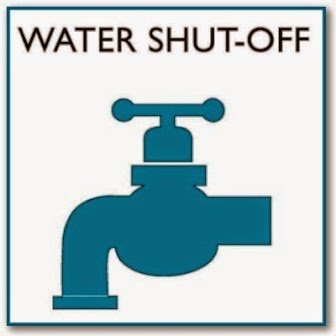Unfortunately this is not a new phenomenon in the world. You read similar stories every month from different parts of the world. The stories always describe how the poorest are the hardest hit and how the rich are always making spectacular recoveries from whatever failed venture. Let's face it, the poor are treated as low class citizens and the rich are treated like royalty - there is no denying it.

Every place you go, every magazine you read, every movie you watch, every song you hear, all tell the same story of how the rich should be respected and envied. The rich are trusted automatically just because they're rich and the poor are feared just because they're poor. There is this idea that the rich "deserve" everything they have because the must have worked hard to earn their positions, whereas the poor "deserve" the life they have because they have done nothing to earn anything better.
These perceptions make it easier for people (and by people I am including corporations, governments and all other businesses) to treat the poor badly (and not feel bad about it or have the public hate them for it). When poor people are treated like dirt (while they are regarded as dirt) no one bats an eye - that's just their lot in life; but when rich people are treated badly there is an uproar because these rich people are seen as being "good" and undeserving of bad treatment. Funny how these things work.
So in everything we do, who are the people we push the hardest when we are under pressure? Those who are less fortunate than ourselves. Employers push harder, debt collectors push harder, the taxman pushes harder - no one is looking at the reality. The poor are unable to push back, all they can do is comply or face the consequences. Everything in the world works against you if you don't have money.
It's part of this fantasy we live in, we don't see things for how they really are, we only see things the way we want to see them.
I originally wrote this post here: http://activistsjourneytolife.blogspot.co.za/2014/07/day-551-poor-foot-bills.html
Indebtedness isn’t always treated equally in our society. Some people get dunned incessantly by debt collectors while others seem to be able to run up thousands or even millions in debt but are given the latitude to extend their indebtedness until their income and assets catch up. Differences in treatment—or indifference to some of the human costs—seem to be the case with Detroit water bills.
As we reported last week, the indebtedness of hundreds of thousands of Detroiters involves delinquencies on their water bill payments. But some customers’ water bill delinquencies may be getting different treatment from city bill collectors. Individual property owners may owe a few months or several months on their average $75-a-month water bills, but a few have some bigger numbers. According to information attributed to the Michigan Citizen and Detroit television station WDIV, the Palmer Park Golf Club owes the Detroit Water and Sewerage Department $200,000, Joe Louis Arena (where the Detroit Red Wings hockey team plays) $80,000, and Ford Field (home of the Detroit Lions) $55,000. We haven’t seen reports on the city shutting the water on the Lions or Red Wings yet.
But Detroit Water has gone after delinquent residential customers like Nicole Hill, a single mother with three children whose water has been turned off. She is one of thousands who are more than $150 dollars behind on their water payments that Detroit Water has targeted for shutoffs as an inducement to pay their bills.
Hill says she moved into her apartment five years ago, but shortly thereafter started receiving monthly bills from the Water Department for about $200. Bills that high might indicate a water leak someplace, and Hill called the department but couldn’t get explanations or revisions. She was then told that she somehow owed $5,754. She began paying $2,800 a year to try to catch up, but the City demanded another $1,700, money she doesn’t have, before it would even consider putting her on a payment plan. With no water service in her apartment, she has now has sent her children to live with friends, fearful that Child Protective Services would take them away if they were discovered living in a place without water. - Nonprofit Quarterly